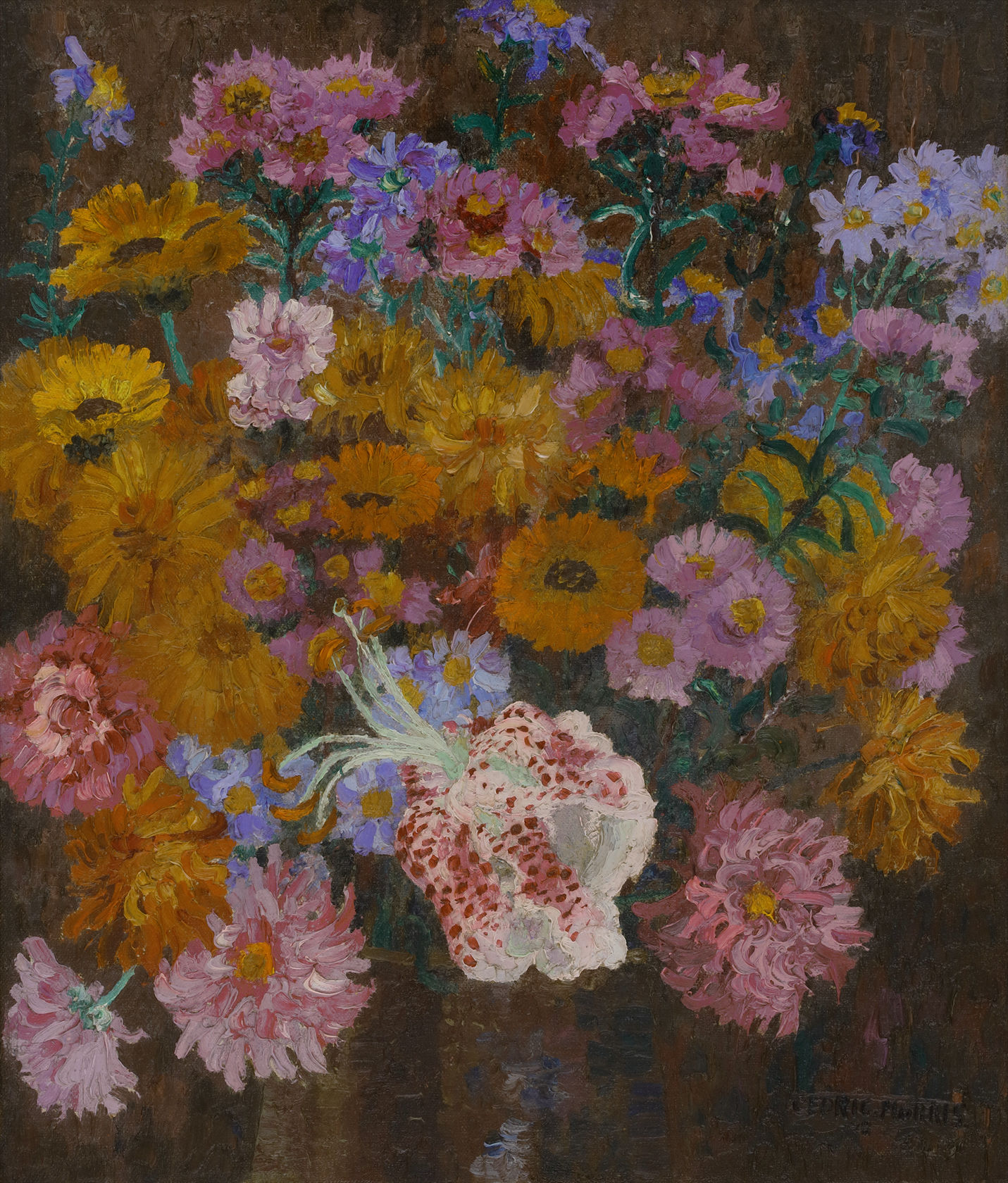Cedric Morris achieved national stature both as a painter and a plantsman. His deep understanding of both vocations – and the connections between them – has secured his place as a household name in both art and horticultural history.
In this early study of an autumnal bouquet, Morris exhibits his deep knowledge of flowers and captures not just an accurate botanical likeness but also a sense of the character of each bloom. Morris grew most of the flowers that he painted and understood their structure profoundly. This particularly composition is typical of the artist’s well-documented working method; here he has worked up each petal with abundant impasto, and flattened the background through thick, repetitive daubes of paint. The reverse of the canvas has been painted by an unknown artist, and depicts two figures in white dresses.
By the mid-to-late 1920s, Morris’ reputation had been established through a number of critically acclaimed exhibitions. Of his 1928 Arthur Tooth & Sons...
Cedric Morris achieved national stature both as a painter and a plantsman. His deep understanding of both vocations – and the connections between them – has secured his place as a household name in both art and horticultural history.
In this early study of an autumnal bouquet, Morris exhibits his deep knowledge of flowers and captures not just an accurate botanical likeness but also a sense of the character of each bloom. Morris grew most of the flowers that he painted and understood their structure profoundly. This particularly composition is typical of the artist’s well-documented working method; here he has worked up each petal with abundant impasto, and flattened the background through thick, repetitive daubes of paint. The reverse of the canvas has been painted by an unknown artist, and depicts two figures in white dresses.
By the mid-to-late 1920s, Morris’ reputation had been established through a number of critically acclaimed exhibitions. Of his 1928 Arthur Tooth & Sons solo exhibition, held during the same year that this work was painted, Frances Hodgkins remarked ‘Cedric is on the wings of an incomparable success – selling & selling – over 40 pictures now gone…’[1] However, fame and fortune were not of high priority to Morris. Despite his growing success in London’s art scene and, much to the dismay of his partner Arthur Lett-Haines who worked hard to bolster his reputation, from around this date, Morris began to retreat from London life to spend more time in the countryside.
[1] Frances Hodgkins quoted in Ben Tufnell (2003) Cedric Morris & Lett Haines: Teaching Art and Life. Norfolk: Norfolk Museums & Archaeology, p.8; Letter to Dorothy Selby 24 May 1928.








